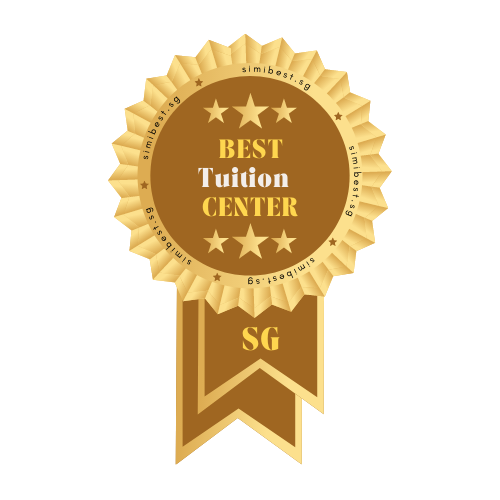Whether you’re crafting a compelling story, writing an essay for school, or preparing for your exams, having a strong vocabulary can make your writing stand out. Fancy words not only enhance your narrative but also demonstrate your linguistic sophistication.
This article delves into various fancy words to use in writing, complete with examples to help you apply them effectively. It’s time to make the most of learning tools already available and enrich your descriptive writing to master English expression.
Why Use Fancy Words?
Fancy words add depth and colour to your writing. They enable you to convey emotions, describe scenes vividly, and make your arguments more persuasive. For students preparing for exams, using such words can help them secure better grades in essays and creative compositions. However, it’s essential to use them appropriately to avoid overcomplicating your text.
Fancy Words To Use For Descriptive Writing

Fancy descriptive words make narratives and descriptions more vivid.
- Iridescent: Shimmering with colours that change when viewed from different angles.
Example: The iridescent glow of the sunset painted the sky with beautiful hues of crimson and gold. - Ethereal: Light, airy, or delicate in an otherworldly way.
Example: Her ethereal beauty captivated everyone in the room. - Luminous: Emitting or reflecting light.
Example: The luminous moon illuminated the tranquil sea, creating a glistening path across the water. - Serene: Calm, peaceful, and untroubled.
Example: The serene lake mirrored the cloudless blue sky. - Resplendent – Richly colorful and sumptuous, with an attractive and impressive appearance.
Example: The bride looked resplendent in her ivory gown. - Effervescent: Vivacious and enthusiastic.
Example: Her effervescent personality lit up the room. - Celestial: Relating to the heavens or divine.
Example: The celestial music seemed to carry us to another realm. - Gossamer: Something very light, thin, and delicate.
Example: The gossamer threads of the spider’s web glistened in the morning dew. - Radiant: Sending out light; shining or glowing brightly.
Example: She wore a radiant smile that lit up the entire room. - Picturesque: Visually attractive, especially in a quaint or charming way.
Example: The picturesque village nestled in the hills attracted many tourists.
Fancy Words To Use For Emotional Expression
Expressing emotions with precision can add authenticity to your writing.
- Melancholy: A deep, pensive, and prolonged sadness.
Example: She felt a wave of melancholy wash over her as she said goodbye. - Euphoria: Intense feeling of happiness and excitement.
Example: Winning the championship filled the team with euphoria. - Empathy: The ability to understand and share the feelings of others.
Example: His empathy for others made him a great leader. - Exuberant: Filled with lively energy and excitement.
Example: The children’s exuberant laughter echoed through the playground. - Nostalgic: A sentimental longing for the past.
Example: Looking at old photographs always made her nostalgic. - Jubilant: Feeling or expressing great happiness.
Example: The jubilant crowd celebrated the team’s victory. - Forlorn: Pitifully sad and abandoned.
Example: The forlorn puppy waited by the door for its owner. - Elated: Ecstatically happy.
Example: He was elated to hear about his promotion. - Despondent: Low in spirits because of loss of hope or courage.
Example: The despondent look on his face revealed his disappointment. - Apprehensive: Worried or scared that something bad will happen.
Example: She felt apprehensive about the upcoming exam.
Fancy Words To Enhance Argumentative Writing

When writing persuasive essays or debates, sophisticated vocabulary can strengthen your points.
- Cogent: Clear, logical, and convincing.
Example: Her cogent argument swayed even the most sceptical listeners. - Impeccable: Flawless and of the highest standard.
Example: His impeccable research backed up every claim he made. - Vindicate: To clear someone’s name after being blamed or suspected.
Example: The evidence vindicated her after weeks of scrutiny. - Scrutinise: To examine or inspect closely and thoroughly.
Example: The teacher scrutinised every detail of the essay. - Anecdotal: Based on personal accounts rather than facts.
Example: The anecdotal evidence didn’t hold up under scrutiny. - Incontrovertible: Not able to be denied or disputed.
Example: The incontrovertible proof sealed the case. - Erudite: Having or showing great knowledge or learning.
Example: The professor’s erudite lecture captivated the students. - Plausible: Seeming reasonable or probable.
Example: His explanation for the delay sounded plausible. - Astute: Having or showing an ability to accurately assess situations.
Example: Her astute observations helped solve the mystery. - Substantiate: Provide evidence to support or prove the truth of something.
Example: The witness was able to substantiate her claims. - Refute: Prove something to be false or wrong.
Example: She was able to refute the opposing argument with solid evidence. - Conclusive: Serving to settle an issue; decisive.
Example: The conclusive data ended the debate. - Equitable: Fair and impartial.
Example: The judge made an equitable decision. - Delineate: Describe or portray something precisely.
Example: He was able to delineate the key points effectively. - Exemplify: To be a typical example of something.
Example: Her actions exemplify true leadership. - Articulate: Convey a thought or emotion clearly and effectively.
Example: He was able to articulate his thoughts clearly. - Pertinent: Relevant or applicable to a particular matter.
Example: Her comments were pertinent to the discussion. - Concur: To agree with someone.
Example: I concur with your assessment. - Eloquence: Fluent or persuasive speaking or writing.
Example: His eloquence won the audience over. - Hypothetical: Based on an assumption or guess.
Example: Her hypothetical scenario illustrated the potential outcomes.
Fancy Words To Use For Narratives
These words can enhance storytelling by adding flair and drama.
- Abyss: A deep or seemingly bottomless chasm.
Example: He peered into the abyss, feeling both awe and fear. - Enigma: A person or thing that is mysterious or puzzling.
Example: Her motives remained an enigma to everyone around her. - Ephemeral: Lasting for a very short time.
Example: The ephemeral joy of the holiday faded quickly. - Labyrinth: A complicated and irregular network of passages.
Example: They got lost in the labyrinth of alleyways. - Havoc: Widespread destruction or chaos.
Example: The storm wreaked havoc on the small coastal town. - Paradox: A statement that contradicts itself but may be true.
Example: The paradox of her behaviour intrigued the psychologist. - Surreal: Having an unreal, dreamlike quality.
Example: The surreal landscape felt like it belonged in a painting. - Fathom: Understand after much thought.
Example: She couldn’t fathom why he made that decision. - Vivid: Evoking strong images and emotions.
Example: The author’s vivid descriptions brought the story to life. - Imminent: About to happen.
Example: Dark clouds signalled that a storm was imminent.
Tips For Using Fancy Words Effectively
- Understand the Meaning: Ensure you know the exact meaning and nuances of a word before using it.
- Context Matters: Use words that fit the tone and context of your writing.
- Avoid Overloading: While fancy words enhance your writing, too many can make it cumbersome.
- Practice: Incorporate new words gradually into your vocabulary through reading and writing.
Conclusion About Fancy Descriptive Words
Expanding your vocabulary with fancy words to use in writing can dramatically elevate your compositions. For students in Singapore preparing for exams, mastering these words can make all the difference in achieving top marks.
If you’re looking for the best English tuition in Singapore, consider enrolling in DO Applied Learning by Epoch Talent Academy.
Led by an Award-Winning MOE Officer and English Language Specialist, our classes provide unparalleled guidance in mastering the art of English writing. Start your journey today!
Frequently Asked Questions About Fancy Descriptive Words
Why Should I Use Fancy Descriptive Words In My Writing?
Fancy descriptive words make your writing more vivid and engaging, allowing readers to visualise scenes and connect emotionally with the narrative.
How Can I Remember And Use These Words Effectively?
Practise regularly by writing sentences or paragraphs using new words. Reading widely also helps reinforce vocabulary.
Can Fancy Words Be Used In Formal Writing?
Yes, but ensure they fit the tone of your work. Avoid using overly flowery language in academic or professional contexts.
Where Can I Learn More Advanced Vocabulary?
Reading literary works, taking English tuition classes, and using vocabulary-building tools are excellent ways to expand your lexicon.












